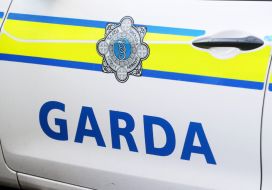A Garda investigation into almost 4,500 DNA samples related to major crimes that were “lost” by the force has now identified all but 489 samples.
Of those, Garda Commissioner Drew Harris said there were 234 individuals that the force does not hold samples on.
He said there was a “small risk” that those individuals have engaged in other crimes.
Appearing before the Policing Authority on Wednesday, Mr Harris was asked if there was a risk that court cases could be affected by the issue.

He replied: “In effect you’re talking about 234 individuals that we don’t hold samples on.
“If they have not become a suspect in an investigation in some other manner, through other evidence or intelligence, then there is a risk that those 234 may have engaged in crimes for which we have an unidentified DNA sample within the forensic science laboratories.
“That is a risk.
“I think it’s a small risk, given that the DNA is very rarely the sole method of detection.
“There’s all the other means of detection of offences are open to it.
“Whilst the risk does exist, it’s very hard to quantify.
“I think in a database of over 46,000 samples in this period, it is a small risk.”
The issue first came to light in February 2019, when it was reported that around 2,000 samples were missing from a database dedicated to solving major crimes.
An audit was ordered by the Garda Commissioner, which was delivered to the Policing Authority and GSOC at the end of September this year.
It identified 4,446 sample reference numbers (SRNs) which had been recorded by Gardai but had not been notified by Forensic Science Ireland (FSI) as required.
“If you look at the period we’re examining between November 15 and April 19, there’s just over 46,000 sample reference numbers created,” Mr Harris said.
“Of that then there were almost 4,500 where those SRNs are not matched to a DNA sample.
“That was the matter of subsequent investigation.”
IT system
He added: “That number has been reduced through examination and pursuit of these matters down to 489.
Assistant Commissioner John O’Driscoll, who coordinated the investigation, said further analysis had identified 34 cases where a sample was missing and a person had not been prosecuted.
He added: “We’re going into those cases to see what the significance of the DNA sample was in the individual case.
“When the exercise is completed we may well have that analysis in respect of all the cases involved.”
Mr Harris said a lot of the issues could be contributed to the fact that Gardai were operating on a paper-based system, and that they are in the process of moving to an IT system.
“In some ways I have to say, when we’re based on a paper-based bureaucracy, it was always at risk, together with all the other systems we were engaged in which were paper-based as well.
“The investigation management system which we’re rolling out should resolve a lot of these matters.”
The Policing Authority’s Dr Moling Ryan said the report had raised concerns that there had been “an inadequate appreciation with the organisation as to the importance of DNA samples” and “a lack of due care and attention to those samples”.







